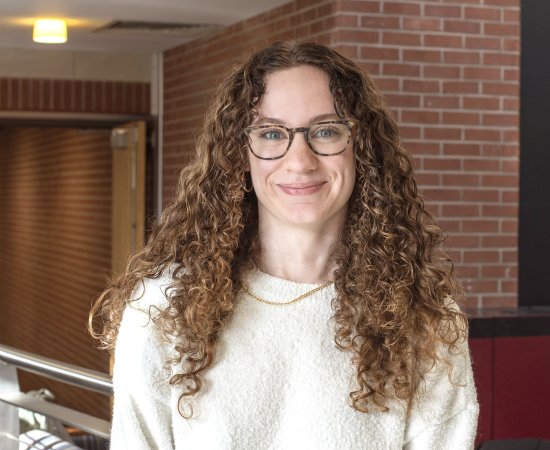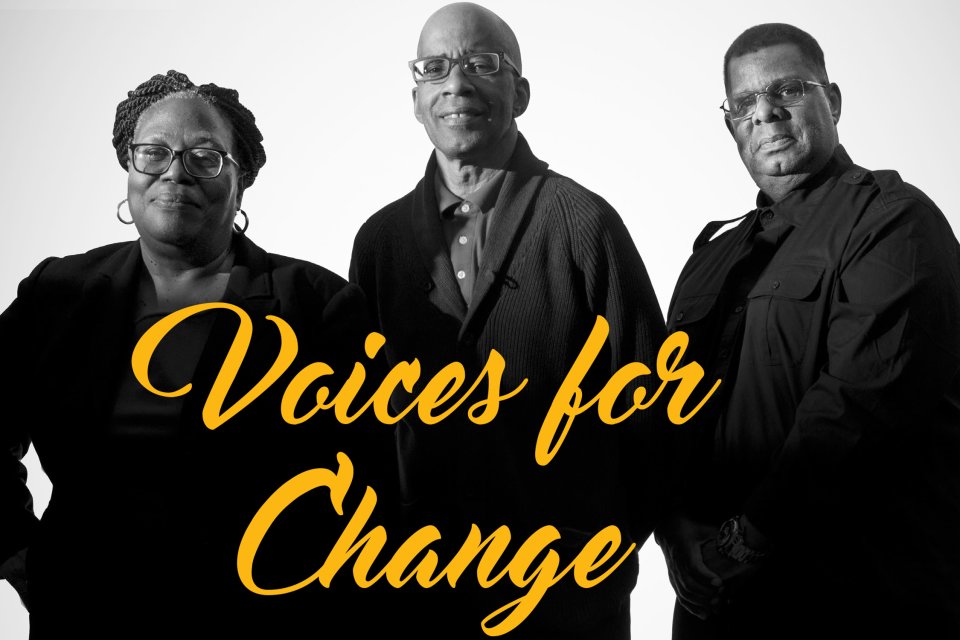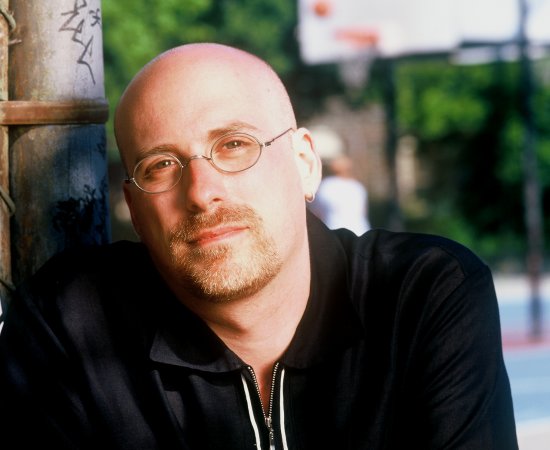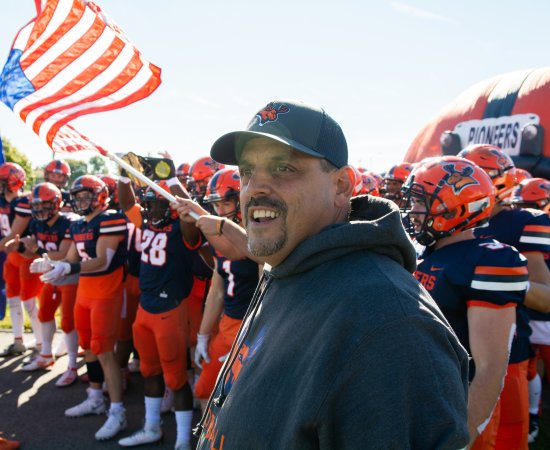
Voices for Change

As part of UC’s two-weeklong celebration of Dr. Martin Luther King Jr. in January 2017, Ronald Spratling ’71, Janice Miles ’74, and Oliver Perry ’74, returned to campus—some for the first time since graduation—to reflect on one of the most pivotal eras in UC history.
Before a crowd of UC students, faculty, and staff, the alumni discussed the culture of activism at UC in the late 1960s and early 1970s, the creation of the Black Student Union, and how their fight helped shape Utica College—and vice versa. “We broke the ground for further movement toward a college that was sensitive to the vital needs of its students,” Perry told the audience. “In turn, I sincerely hope we have proven to the College that their investment in us was worthwhile.”
Here, Perry reflects on his journey.
When Oliver Perry arrived at Utica College in the fall of 1969, he didn’t exactly feel at home.
For the first time in his life, Perry, who grew up in the Bronx, was surrounded by predominately “middle-class white people,” he remembers.
Everything from the plays put on by the theatre department to the songs on the Pioneer Pub jukebox (no R&B, but lots of Beach Boys) seemed out of touch with his own life experience.
“I felt the climate wasn’t necessarily inclusive,” says Perry.
And it wasn’t long before he learned that other black students felt the same way—and had been fighting for change for years.
In the fall of 1966, a group of 20 black students came together to form United Students. Its mission: “to inform both black and white students of the Negro in this society and, hopefully, promote more humanitarian attitudes toward the Negro in America.”
Over the course of two years, the group grew and became more visible on campus while developing a progressive list of demands: install a lecture series for prominent black speakers, create courses on black history and achievement, establish a black cultural center on campus, and make a more concerted effort to recruit minority students, to name a few.
“During the past three years, several black students have left Utica College because the educational system has been grossly delinquent in responding to the modern needs of the minority students,” their proposal began.
While some of the demands were met, others had been ignored by college administration, prompting six students representing the newly named Black Students Union to stage a historic sit-in in a campus computer lab. Because of their efforts, an agreement was finally reached with then-president Dr. J. Kenneth Donahue.
That was May 1969.
The dust had barely settled when Oliver Perry arrived on campus later that year, and he quickly joined the movement. He was elected the BSU’s minister of defense in fall 1970, one of six leaders (including minster of culture Janice Miles ’74) responsible for branches of the organization. He became one of the most vocal members, often serving as the BSU’s representative in meetings with administration. He organized discussions, where all students were invited to share their opinions on what changes still needed to be made.
“There was some pushback. There were people who felt they were losing their sense of belonging as [the BSU] became more powerful on campus,” Perry says now. “My guiding principle was that everyone had a right to be at UC and everyone had a right to be heard.”
In the spring of 1971, Perry helped established UC’s first Black Cultural Weekend, an event that brought more than 100 black high-school students, along with prominent black speakers, playwrights, poets and musicians, to campus. With Perry and Miles at the helm, the BSU became one of the most active and visible student groups at Utica College.
After graduating from UC in 1974 with a degree in behavioral science, Perry went on to earn his masters at Antioch University. His career path echoes his beginnings at Utica College; he’s spent decades working with youth cultural programs and non-profits in New York City. Today, he’s deputy executive director of Urban Hope NYC, a community organization that creates summer camps, after-school programs, and basketball leagues for at-risk kids and teens.
Looking back now, Perry’s memories of that time at UC are largely positive. The faculty and administration, he says, “recognized the value in what we were trying to accomplish.”
And learning to advocate for himself and his peers planted a seed in Perry, he says. “I learned how to represent myself and stand up for others,” he says. “It began the growth process that led me down the path that built my career.”
More Stories


A Conversation with Larry Platt ’87, Producer of the Most-Watched Documentary Ever in the U.S.

Longtime Coach Blaise Faggiano’s Coaching Tree is Growing
I would like to see logins and resources for:
For a general list of frequently used logins, you can also visit our logins page.
